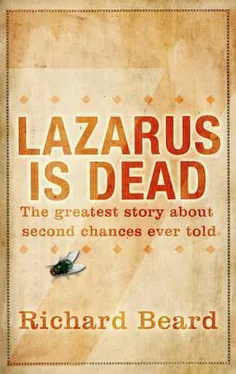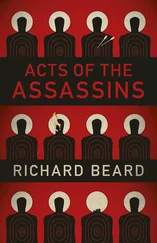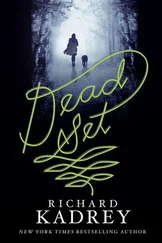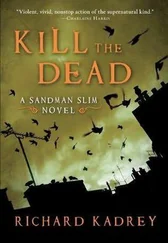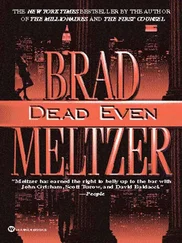Lazarus faces the sealed tomb door. The soldiers are clearing away their tools.
‘Jesus,’ Lazarus says. He clears his throat and starts again. ‘Jesus, come out.’
There is a crack in his voice, which sounds timid even to him.
‘Again,’ Mary says. ‘Face the tomb as if you mean it. He’s only been buried one night.’
‘They’ve mortared the door. I saw them do it.’
Mary tilts her head to one side. ‘Lazarus, say it properly, before it’s too late.’
Lazarus searches the cloudless sky. Nothing. ‘I can’t. I’m sorry. I don’t believe I can call him out.’
‘You’ve got this the wrong way round,’ Cassius says. He looks from Lazarus to Mary as if settling a dispute. ‘Lazarus isn’t at fault. It’s Jesus who can’t come back.’
‘Jesus is the son of god.’ Mary prepares to turn away. ‘I shall pray for you. I’ll pray for you both.’
‘Let her go,’ Cassius says. He takes Lazarus by the elbow. ‘There’s something I want you to see.’
4
Inside the city walls, despite the Sabbath, Lazarus attracts attention. People shout his name, which soon adds to the numbers who follow him.
Lazarus is a lodestone for the recently bereaved, and today Jerusalem aches with unexplained grief, the feeling that those we have loved should not die. Lazarus is hope — no one is more alive than he is, and recent events have encouraged this year’s Passover pilgrims to expect a messiah. Unpredictable weather patterns, disturbances at the Temple, a nervous Roman governor: this is how the final revelation will begin.
As a religious idea, Jesus has failed. He is dead. He is therefore not the son of god and will not save Israel for god’s chosen people. He needs to be replaced.
Lazarus is soon walking at the head of a substantial crowd. In the cramped streets of Jerusalem strangers reach out to touch him. He is solid flesh. He has not abandoned them, and as faithful pilgrims all they need do is follow.
The procession continues to grow, and Cassius tells Lazarus what to say.
‘I am the way,’ Lazarus repeats what he hears whispered in his ear. ‘I am the way and the life.’
The words travel back and forth in a rapid murmur.
‘And anyone who believes in Lazarus,’ he adds, ‘shall never die.’
This is the living messiah they expect.
‘What is beyond?’ someone shouts, and without any prompting Lazarus provides the answer. Why shouldn’t he? He has lived this experience. He is the only person alive who might know.
‘There is not nothing,’ he says, or how could he be here now? ‘Believe me, I have been there, and beyond this world we know there is something without end.’
The Church of Lazarus Christ shines across the future.
The people of Judaea have a talent for belief. The feeding of a crowd of thousands with two loaves of bread and five small fish. A carpenter who can walk on water, in a storm. Why not Lazarus?
Lazarus will offer himself as a leader with experience of the mysteries of existence. He will be like Jesus, but less irresponsible. He will hesitate to recommend a diet of locusts and honey, and is unlikely to require periods of fasting in the desert. He’ll get married and live in the city, the messiah of second chances, the hope of regretted lives.
Try again. Rise up and start afresh.
Believers in Lazarus Christ may shave or not shave, circumcise their children or not. Lazarus doesn’t mind. They may choose to work or seek entertainment on the Sabbath. Veils will not be required for women, who can enter the Lazaran synagogue by the front door and learn their scriptures with the men.
As long as Lazarans respect the authority of Rome they may believe whatever they like. Let the Romans take care of today, and with the right spiritual guidance, carefully administered, Palestine can become a new Gaul, full of prosperous Roman citizens living in religiously free cities.
One of which might be named after Lazarus, or after Cassius.
Lazaran Christianity will save Jerusalem from the certain doom of failing to assimilate with Rome. It concerns itself with the next world, not this one, which belongs to the wealthy and powerful and always will.
Lazarus offers peace and stability, an invitation to embrace material comforts, and evidence for thinking most positively about death.
Everyone will be happy.
Saturday’s Lazarus procession ends not at the Temple but at the Bethesda pool. At Passover, the numbers in and around the water increase with those seeking solace after exclusion from the Temple. The ill and imperfect, the diseased and disabled gather to wash themselves clean. Lazarus recognises his earlier symptoms many times over. He sees the work of Jesus left undone.
‘Go out and do good among the people,’ Cassius says.
‘There are so many of them. Where do I start?’
Lazarus is the victim of a miracle. He has no privileged explanation, nor secret indication of what to do next. Like anyone else, he wonders what to expect of himself. He looks at his hands, his forearms. He is sadly lacking in luminosity, and this confusion is one of the reasons that the era of miracles is about to end. In future, the faithful will be asked to believe without spectacular interventions, and most believers can do this: it is part of what makes them faithful.
At the Bethesda pool, Isaiah bundles his way through the sick and lethargic towards Lazarus. He has important news about Saloma.
‘Is she worse?’
‘No. That’s just it. We think she’s getting better.’
Yanav watches from the road above the Bethesda pool. His half-blind donkey chews on roadside weeds, bags and jars sagging across its back. The dog leaps on ahead.
Yanav plans to stop for a night or two in Jericho, and then turn south along the Dead Sea to Idumea. The Idumeans are great believers in the powers of peacock feathers and astronomy.
He takes a last look at the pool below him. From a distance, Cassius has the trick of blending in, but Isaiah is easy to spot with his extravagant arm gestures, pulling in his memories, throwing out his hopes.
Yanav has done what he can for Saloma. Last night he left a new concoction with her mother, thinking it might help with the spasms. One day, demons will be as easy to cast out as stones from a shoe, but not yet.
He regrets not learning more from Jesus, but envy had made him stupid and he’d missed the public healings. At least he’d been there in Bethany for the miracle of Lazarus, and he’d memorised the words of the spell: Lazarus, come out.
He tries the three words in a different order, alters the stress and intonation. These words have power, and if he can find and control it then at some stage that knowledge will come in useful elsewhere.
‘Isn’t that right?’ Yanav says, clicking his donkey back to the road. He pulls her head round and whistles to the dog.
They’ll be all right, the three of them, because Yanav’s fame goes ahead of him. He is the healer of Lazarus, the man who came back from the dead.
5
‘We think she’s getting better,’ Isaiah says. ‘She smiled at me.’
Lazarus spreads his arms to take in the sick and poor at the Bethesda pool. ‘One among so many.’
‘Don’t stop at Saloma,’ Cassius says. ‘Of course not. You’re needed here.’
Isaiah is planning ahead. Saloma is sitting up with bright eyes and her mouth closed. She is changing almost by the hour. To be fair, Lazarus has also changed. He squandered his money making sure he didn’t die, and is no longer the catch he was.
‘You were very sick when you made certain decisions,’ Isaiah says. ‘You came to my house to apologise, and I wouldn’t begrudge you a change of mind.’
His daughter is healing, but Isaiah has already identified more to want: a messiah will never make everyone happy, as Jesus discovered. ‘Release Saloma from her betrothal. Give her some time to concentrate on getting well.’ Also, Isaiah has seen what happens to messiahs. He doesn’t want to rush into an alliance with Lazarus, not now.
Читать дальше
